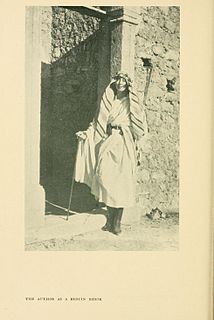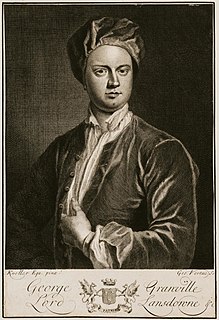A Quote by Ella Wheeler Wilcox
Give of thy love, nor wait to know the worth
Of what thou lovest; and ask no returning.
And wheresoe'er thy pathway leads on earth,
There thou shalt find the lamp of love-light burning.
Related Quotes
Owe no man any thing, but to love one another: for he that loveth another hath fulfilled the law. For this, Thou shalt not commit adultery, Thou shalt not kill, Thou shalt not steal, Thou shalt not bear false witness, Thou shalt not covet; and if there be any other commandment, it is briefly comprehended in this saying, namely, Thou shalt love thy neighbour as thyself.
Wouldst thou know the lawfulness of the action which thou desirest to undertake, let thy devotion recommend it to Divine blessing: if it be lawful, thou shalt perceive thy heart encouraged by thy prayer; if unlawful, thou shalt find thy prayer discouraged by thy heart. That action is not warrantable which either blushes to beg a blessing, or, having succeeded, dares not present a thanksgiving.
If with love thy heart has burned; If thy love is unreturned; Hide thy grief within thy breast, Though it tear thee unexpressed; For when love has once departed From the eyes of the false-hearted, And one by one has torn off quite The bandages of purple light; Though thou wert the loveliest Form the soul had ever dressed, Thou shalt seem, in each reply, A vixen to his altered eye; Thy softest pleadings seem too bold, Thy praying lute will seem to scold; Though thou kept the straightest road, Yet thou errest far and broad.
Beneficence is a duty. He who frequently practices it, and sees his benevolent intentions realized, at length comes really to love him to whom he has done good. When, therefore, it is said, "Thou shalt love thy neighbor as thyself," it is not meant, thou shalt love him first and do him good in consequence of that love, but, thou shalt do good to thy neighbor; and this thy beneficence will engender in thee that love to mankind which is the fulness and consummation of the inclination to do good.
Thou shalt love the Lord thy God with all thy heart, and with all thy soul, and with all thy mind." I found the following quote by Goethe that can serve as a commentary on these words. "We are shaped and fashioned by what we love." "The most important thing a father can do for his children is to love their mother.
I know that I shall have lost to the jungle if I take a weak moral standpoint or relax my mental punctiliousness. I have therefore come to a certain belief which is based on three powerful effective commandments: THOU SHALT BE ENTERTAINING AT ALL TIMES. THOU SHALT OBEY THY ARTISTIC CONSCIENCE AT ALL TIMES. THOU SHALT MAKE EACH FILM AS IF IT WERE THY LAST.
What thou lovest well remains, the rest is dross What thou lov'st well shall not be reft from thee What thou lov'st well is thy true heritage Whose world, or mine or theirs or is it of none? First came the seen, then thus the palpable Elysium, though it were in the halls of hell. What thou lovest well is thy true heritage.
Wouldst thou learn thy Lord's meaning in this thing? Learn it well: Love was His meaning. Who shewed it thee? Love. What shewed He thee? Love. Wherefore shewed it He? For Love. Hold thee therein and thou shalt learn and know more in the same. But thou shalt never know nor learn therein other thing without end. Thus was I learned that Love was our Lord's meaning.
Beware, I pray thee, of presuming that thou art saved. If thy heart be renewed, if thou shalt hate the things that thou didst once love, and love the things that thou didst once hate; if thou hast really repented; if there be a thorough change of mind in thee; if thou be born again, then hast thou reason to rejoice: but if there be no vital change, no inward godliness; if there be no love to God, no prayer, no work of the Holy Spirit, then thy saying "I am saved" is but thine own assertion, and it may delude, but it will not deliver thee.






































